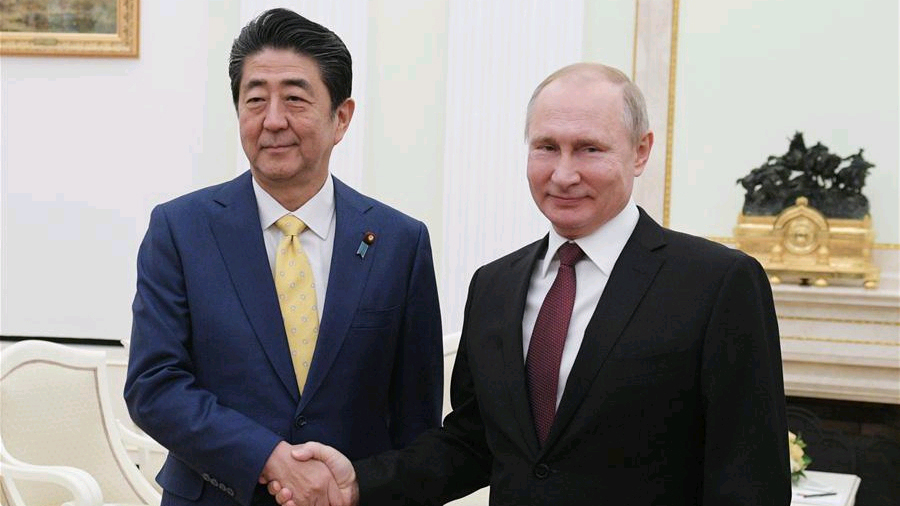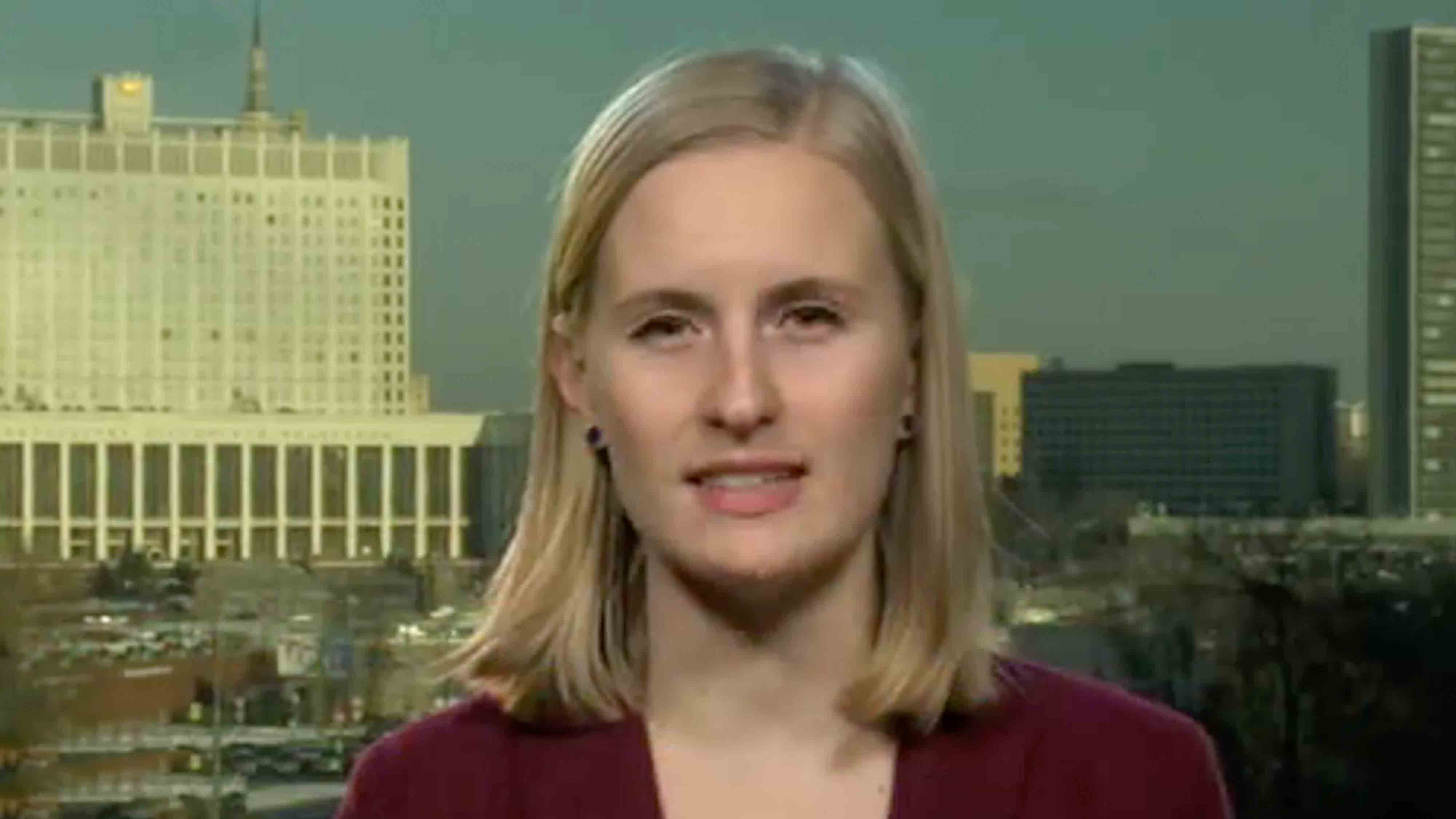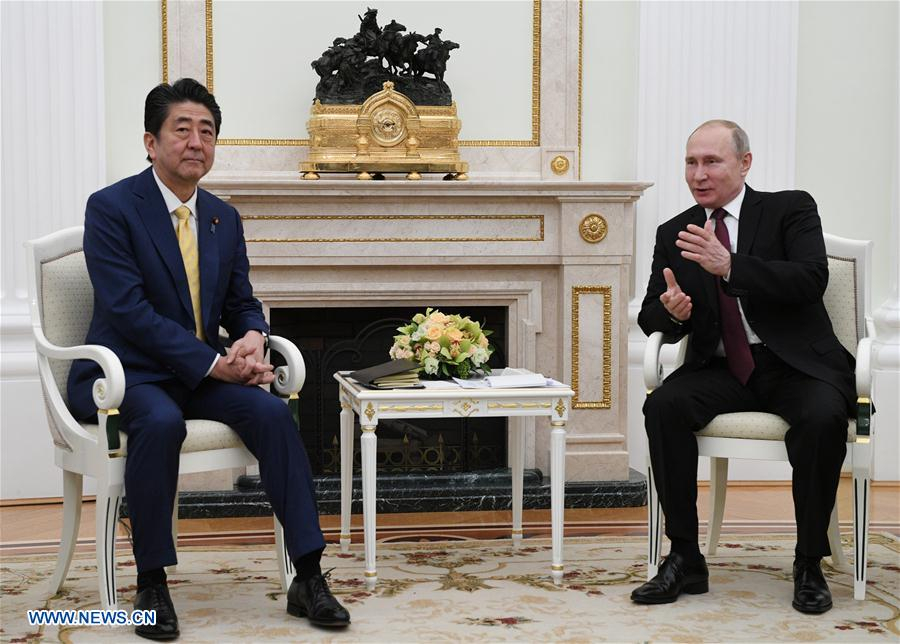
Asia Pacific
22:36, 22-Jan-2019
Putin, Abe hold summit to break island impasse
Updated
11:25, 23-Jan-2019
CGTN
01:09

Russian President Vladimir Putin and Japanese Prime Minister Shinzo Abe on Tuesday failed to reach a major consensus on decades-old territorial disputes that have mired peace treaty talks.
At a news briefing following their 25th meeting in Moscow, Putin said Russia and Japan have "meticulous work ahead" on creating conditions for reaching a peace treaty.
"We have once again confirmed our interest in signing this document ... The solution will have to be acceptable for the peoples of Russia and Japan," he told reporters.
Abe said at the briefing that he and Putin discussed the peace treaty issue "without hiding anything from each other."
01:18

"President Putin and I salute the start of concrete talks between our foreign ministers last week ... The discussions were frank and serious," he said.
Abe said the two leaders agreed to continue joint work to look for a mutually acceptable solution.
Russian Foreign Minister Sergei Lavrov and his Japanese counterpart Taro Kono held the first round of negotiations on January 14 in Moscow and they reported barren results to Putin and Abe during Tuesday's meeting.
Lavrov and Kono will hold the next round of talks on the sidelines of the Munich Security Conference next month, according to Abe.
"To settle the issue unsolved for more than 70 years after the end of World War II is difficult, but we have to do it," the Japanese leader said.

Russian President Vladimir Putin (R) meets with Japanese Prime Minister Shinzo Abe in Moscow, Russia, January 22, 2019. /Xinhua Photo
Russian President Vladimir Putin (R) meets with Japanese Prime Minister Shinzo Abe in Moscow, Russia, January 22, 2019. /Xinhua Photo
Long-standing spat
Russia and Japan have not signed a post-World War II peace treaty due to their rivaling claims over four Pacific islands, which are known as the Southern Kurils in Russia and the Northern Territories in Japan.
The Soviet army took the four islands in the final days of World War II. After the collapse of the Soviet Union, they were incorporated into Russia.
According to a joint declaration signed in 1956, the then Soviet Union agreed to return two of the islands provided a bilateral peace treaty is signed, while Japan refused to sign such an agreement, insisting on the return of all four islands.
However, Moscow has recently toughened its stance, demanding that the peace treaty talks be based on Japan's full recognition of the aftermath of World War II, including Russian sovereignty over all the disputed islands.
Economic attractiveness
According to Putin, Russia-Japan trade increased 18 percent to nearly 20 billion U.S. dollars in the January-November period of last year.
"It will be possible, in the coming years, to set a goal to increase Russia-Japan trade by at least 50 percent to 30 billion U.S. dollars," Putin said at Tuesday's briefing.
Putin and Abe also agreed on Tuesday to continue efforts to organize joint economic activities on the disputed islands in five spheres – aquaculture, greenhouses, wind energy, tourism and waste processing.
They asked interested parties and organizations to launch joint economic activities there as soon as possible.
Read more:

SITEMAP
Copyright © 2018 CGTN. Beijing ICP prepared NO.16065310-3
Copyright © 2018 CGTN. Beijing ICP prepared NO.16065310-3